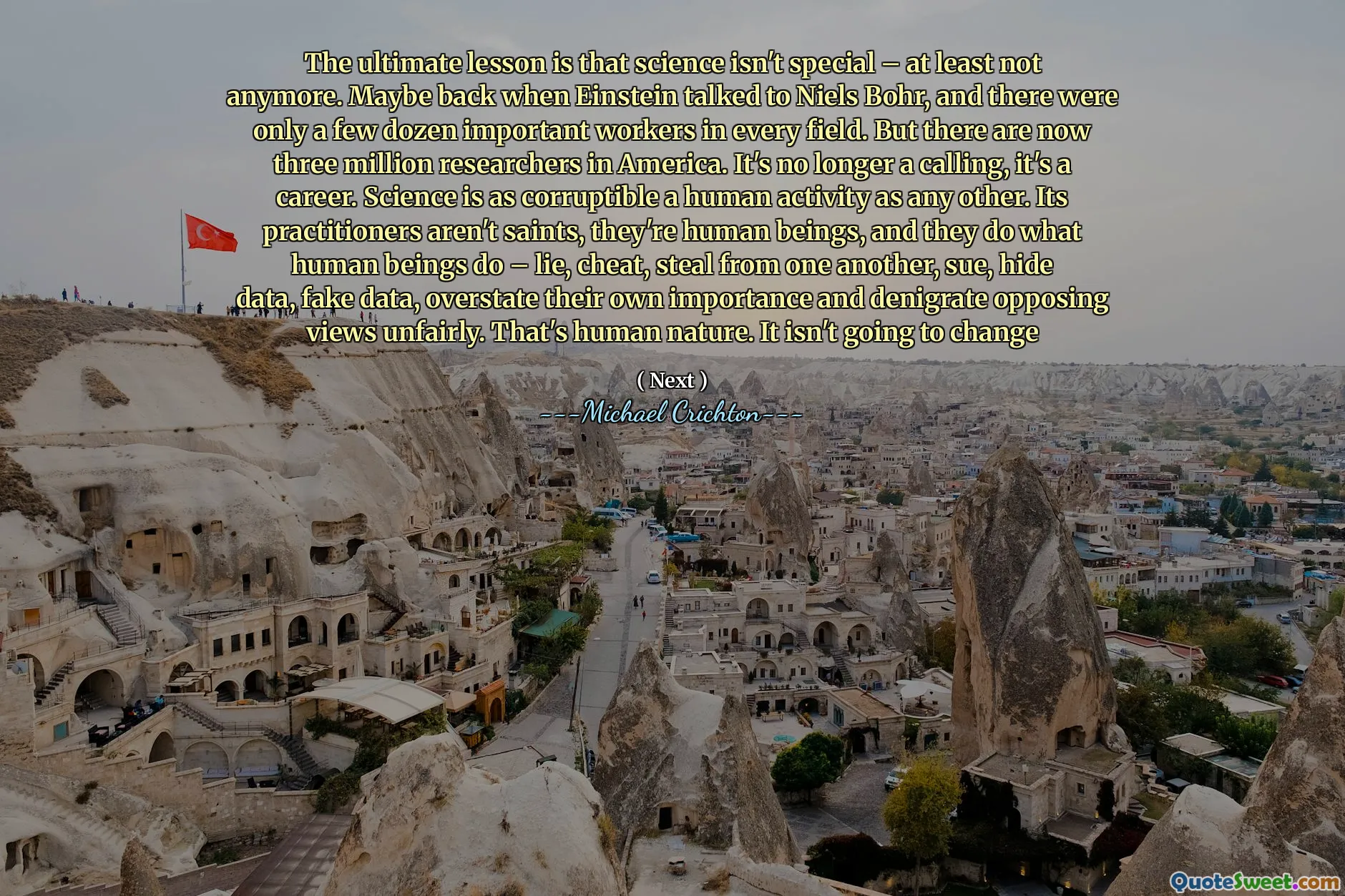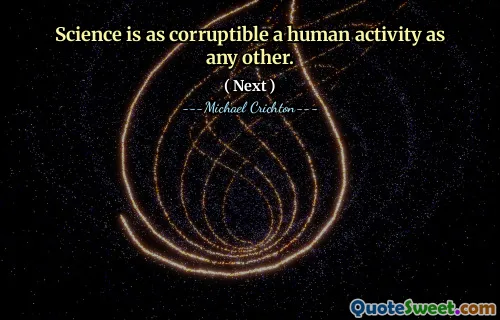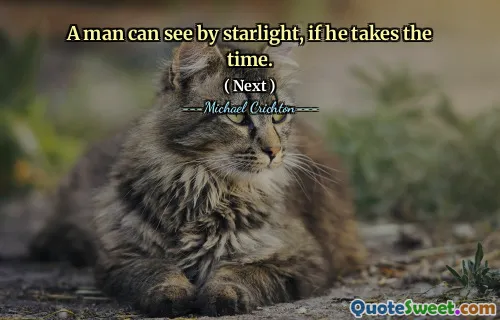
The ultimate lesson is that science isn't special – at least not anymore. Maybe back when Einstein talked to Niels Bohr, and there were only a few dozen important workers in every field. But there are now three million researchers in America. It's no longer a calling, it's a career. Science is as corruptible a human activity as any other. Its practitioners aren't saints, they're human beings, and they do what human beings do – lie, cheat, steal from one another, sue, hide data, fake data, overstate their own importance and denigrate opposing views unfairly. That's human nature. It isn't going to change
In the view presented in Michael Crichton's book "Next," science has evolved from a noble pursuit to a commonplace career, with millions of researchers now involved. This shift suggests that the integrity once associated with scientific inquiry has been compromised by the same human flaws seen in other professions. As the field has expanded, so too have the potential for corruption and unethical behavior among scientists.
Crichton argues that scientists, like all humans, are subject to the same ethical shortcomings. As a result, actions such as dishonesty, manipulation of data, and personal conflicts arise just as they do in any other career. This perspective challenges the notion that science is inherently virtuous, emphasizing that it is, at its core, a human endeavor, and thus open to all the vices life entails.











